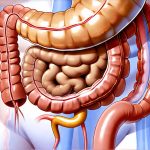Digestive health is often overlooked until something goes wrong. We typically take for granted our ability to comfortably process food and absorb nutrients. However, the digestive system is complex, and a multitude of factors can disrupt its delicate balance. Recognizing potential issues early on isn’t about self-diagnosing; it’s about being proactive with your health and understanding when professional medical attention may be necessary. Ignoring persistent or severe symptoms could lead to more significant complications down the line.
Our bodies are remarkably resilient, but they also communicate distress in various ways. Many digestive complaints can be mild and resolve on their own, such as occasional bloating or heartburn. But when these issues become frequent, intense, or accompanied by other concerning signs, it’s a signal that something might require further investigation. This article will explore some key indicators of potentially serious digestive conditions, emphasizing the importance of seeking appropriate medical evaluation.
Understanding Digestive Discomfort
Digestive discomfort is incredibly common and can range from mild annoyance to debilitating pain. It’s important to differentiate between occasional issues related to diet or stress and persistent symptoms that suggest a deeper problem. Paying attention to patterns – when symptoms occur, what seems to trigger them, and how long they last – provides valuable information for healthcare professionals. Remember, this isn’t about diagnosing yourself but rather gathering details to discuss with your doctor.
When To Seek Medical Attention
Generally, if digestive issues significantly impact your daily life or are accompanied by alarming symptoms, it’s time to consult a physician. Don’t hesitate to seek medical advice; early intervention often leads to better outcomes. Waiting and hoping the problem will resolve on its own can sometimes delay necessary treatment and potentially worsen the underlying condition.
Persistent Changes in Bowel Habits
One of the most noticeable signs of a potential digestive issue is a significant, lasting change in bowel habits. This could manifest as chronic diarrhea (frequent, loose stools), persistent constipation (difficulty passing stools or infrequent bowel movements), or a dramatic alteration in stool consistency. A sudden shift that lasts for more than a few days warrants investigation. Similarly, noticing blood in your stool – whether it’s bright red or dark and tarry – is always cause for concern and requires immediate medical attention. These changes could indicate conditions like irritable bowel syndrome (IBS), inflammatory bowel disease (IBD) such as Crohn’s disease or ulcerative colitis, or even colorectal cancer.
Unexplained Weight Loss & Appetite Changes
Unintentional weight loss, especially when coupled with digestive symptoms, is a red flag that shouldn’t be ignored. Losing a substantial amount of weight without actively trying, despite maintaining your usual diet, could signal a problem with nutrient absorption. Conversely, a significant and unexplained decrease in appetite can also be concerning. These changes might indicate conditions like celiac disease (an autoimmune reaction to gluten), pancreatic insufficiency (difficulty digesting fats), or gastrointestinal cancers that interfere with normal eating habits. It’s important to note that weight fluctuations can occur for many reasons, but when paired with other digestive symptoms, they should prompt a medical evaluation.
Severe & Persistent Abdominal Pain
Abdominal pain is subjective; what one person perceives as mild discomfort, another might experience as excruciating. However, severe abdominal pain that doesn’t subside or worsens over time, especially if accompanied by nausea, vomiting, or fever, requires immediate medical attention. The location of the pain can also offer clues. For example, lower right abdominal pain could suggest appendicitis, while upper abdominal pain might indicate gallbladder issues. Chronic, less intense but persistent abdominal pain could be indicative of IBS, IBD, or even peptic ulcer disease. Don’t attempt to self-treat severe abdominal pain; it’s crucial to seek professional medical evaluation to determine the underlying cause and receive appropriate care.
It’s important to remember that this information is for general knowledge and informational purposes only, and does not constitute medical advice. It is essential to consult with a qualified healthcare professional for any health concerns or before making any decisions related to your health or treatment. Self-diagnosing can be dangerous, and relying on online resources should never replace the guidance of a doctor. Listen to your body, pay attention to changes in your digestive health, and seek medical attention when necessary – proactive care is the best way to protect your overall well-being.


















